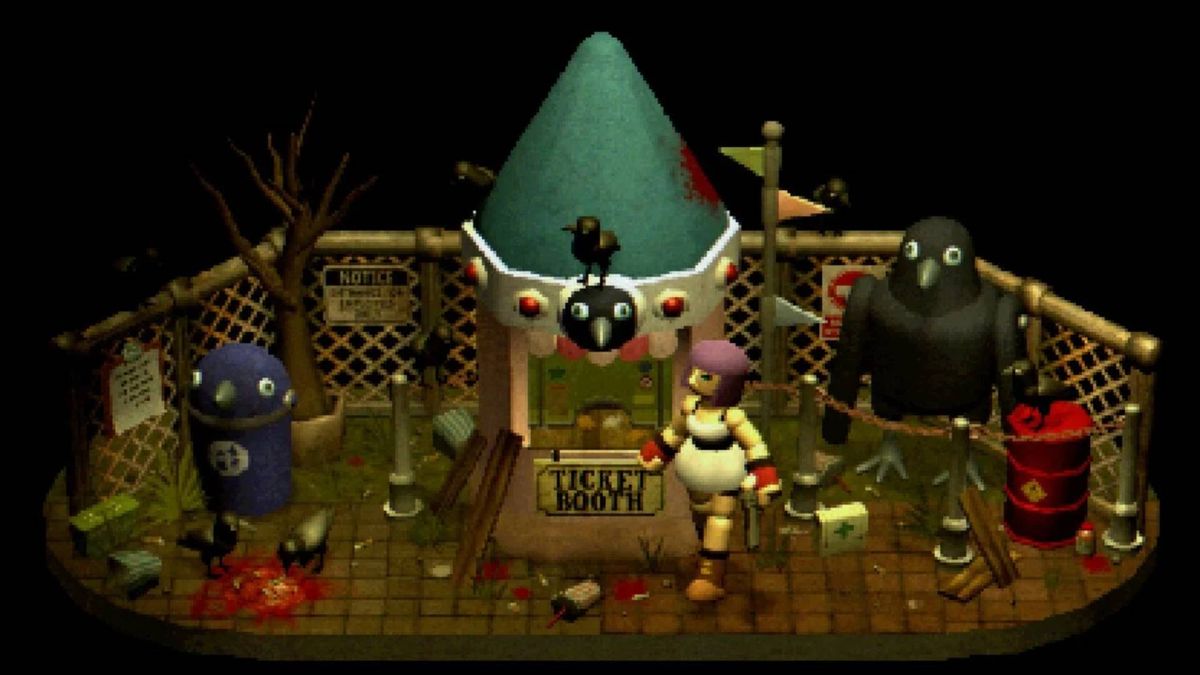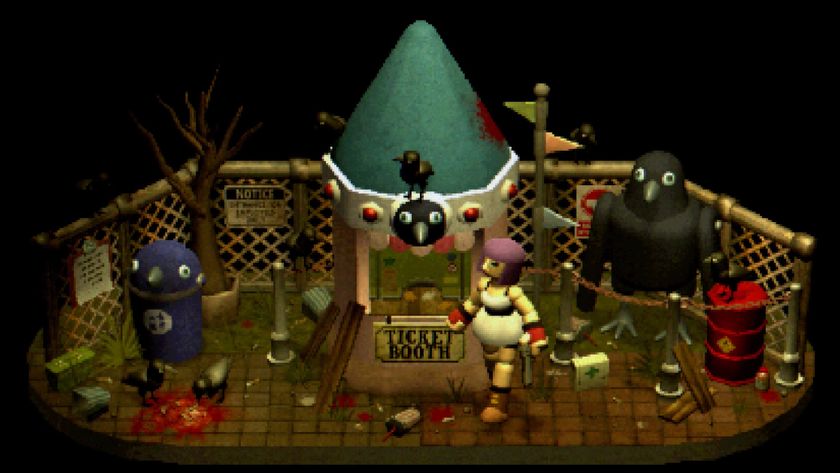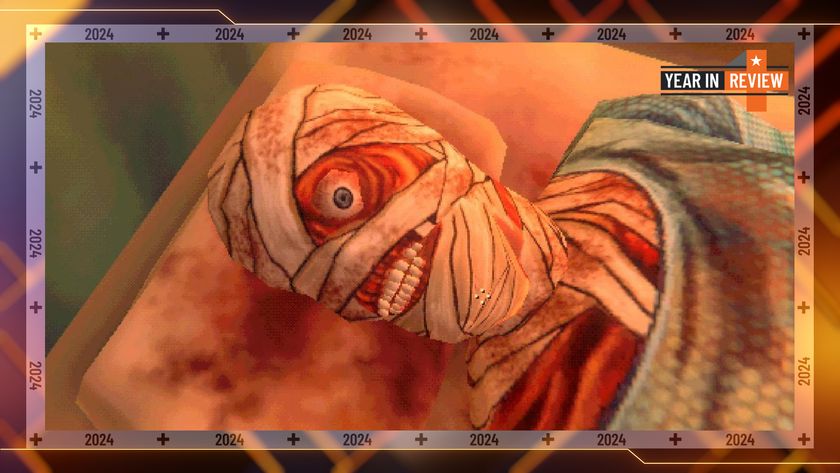12DOVE Verdict
Filled with great puzzles and an engaging world, Crow Country is a well made recreation of how you remember classic 90s horror games. It's familiar enough to feel authentic but different enough to keep things mysterious.
Pros
- +
A fantastic recreation of retro horror
- +
Great puzzles
- +
Good atmosphere and world building
Cons
- -
Art design feels slightly childish
- -
Infuriating map
Why you can trust 12DOVE
There is something very satisfying about Crow Country. From its size to its puzzles, the experience is compact and lean – with mechanics and narrative all bound together with as little connective flab as possible. It almost feels like a perfectly portioned handheld game recreating a flawless homage to, well, basically Resident Evil, with a little Silent Hill thrown in at the end because that is where all PSX retro horror begins and ends (I'm joking but also yes). All in, I wrapped Crow Country in a couple of sittings, about ten hours or so, and felt like there was barely a second where I wasn't fully engaged trying to solve some puzzle or investigate the mystery ahead. It's the kind of game that makes you realize just how often the cliche 'small but perfectly formed' is misused.
Release date: 9 May 2024
Platform(s): PC, PS5, Xbox Series X, PS4, Xbox One
Developer: SFB Games
Publisher: SFB Games
Given its fastidious recreation of Resident Evil's systems, which I'll get to in a moment, it's almost a surprise that Crow Country doesn't follow the usual zombie/outbreak or pattern. There are monsters, obviously, but the set up and story feels refreshingly unfamiliar as you investigate an decrepit abandoned theme park called Crow Country, initially following up a missing persons report on its owner, Edward Crow.
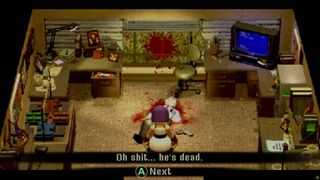
Avoiding familiar plots and monsters is a wise move in a game lovingly built almost entirely from retro horror tropes – if I'd walked into a street full of zombies (with a car on fire somewhere probably) it would have all too quickly felt like a well made homage or pastiche. But the strange and unfamiliar fairground set dressing, and deliberately under-explained plot, means Crow Country captures that feeling of surprise and uncertainty of a classic old horror game perfectly. More than the mechanics, it's this that recaptures the mood and, most importantly, makes you ask all the right questions: like, what the hell is going on? Why the hell is any of this happening? And who the hell builds locks that need poetry to open?!
Stop it, don't open that door!
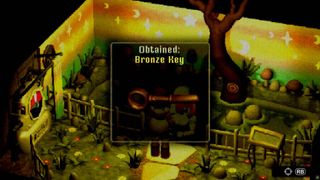
In terms of mechanics, as I mentioned, Crow Country slavishly recreates that Resident Hill memory to the point where it almost feels like a reproduction cast from the same molds. There's weapons progression from handgun to shotgun, flamethrower, magnum, and so on; limited inventory space to manage, and puzzles where you have to find a jewel to put on a thing to get another thing you need to use elsewhere to maybe get a key.
Obviously, there are monsters. In this case a collection of gristley, melty lump people and angry meat puddles with faces. Fighting them is another familiar twist on genre conventions from some of the best survival horror games, mixing the ability to fight with vulnerability as you lock your feet to the floor, stationary, to freely aim at advancing threats. Or, run around in a state trying to make space to do it. It's precise, immediately intuitive but still all too easy to mess up – while you can freely move the camera in Crow Country, it's locked to a sort of close isometric third-person angle so you always feel a little disadvantaged while taking aim in a pinch.
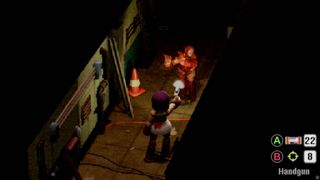
Much like Resident Evils old and new, Crow Country takes place in a sort of open-ish map that you slowly expand your access to as you crisscross it for clues and items. There are bronze, silver and gold keys that open banks of doors for example. Or puzzles that make no sense or lack key components until you reach a certain point and the 'ohhh that goes with that' moment happens. I loved just about every puzzle because they feel like they all hit that rare, perfect sweet spot – just enough friction to provide a challenge, but lubed well enough with clues to slide through without getting stuck.
That puzzle solving satisfaction comes, in part, from that scale I mentioned earlier – the map is small overall, but detailed and layered. It means that a lot of puzzles are quite self-contained, with the pieces you need to work it out nearby, if not in the same room. What does require clues elsewhere, or some backtracking, rarely take long to sort because the compact areas mean you rarely spend more than a few minutes getting from point A to B. That said, it took me ages to make my peace with the map. The room always orientates to the direction you enter it, while the map is resolutely fixed and I constantly struggled to get my bearings, spinning things around trying to match what I could see to the direction I needed to go. When the monsters start to close it can quickly become a case of grabbing the nearest door and just seeing where that takes you. Oh, I'm there...
Puzzle it out
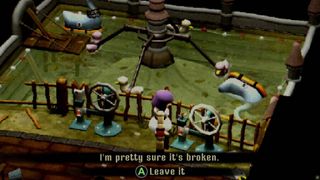
That's not to say that Crow Country doesn't have challenges. I feel like I reached the final act of the game in one sitting, but then took a whole other evening to finish what felt like the final push largely thanks to one unclear puzzle where you have to find someone, and one other puzzle that took ages to click, mainly from my own stupidity. There's also a range of optional puzzles to unlock weapons and other extras I spent much of my later time mopping up – once you reach the mid-game you'll likely have a range of things to look into and solve alongside the main story if you want.
As you retread areas – ticking off puzzles, fighting enemies, and opening up new sections to explore – there's just enough fresh stuff introduced to stop things feeling too familiar or safe. Crow Country isn't afraid to introduce new enemies or mechanics, all of which keep you on your toes as you enter a new area and realize something's changed.
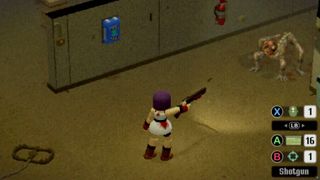
I wasn't initially convinced I'd entirely jam with Crow Country at first, largely because its play on retro horror heartstrings felt almost twee and cloying. It took me a long time to grow to love the overly childish feel to the art style as well. The theme park is a fantastically weirdly wrong place to explore but I wasn't a fan of either the main character's blocky toy shape, or some of the cartoonish enemies (there are some great, creepy things later on but early in most of the monsters look like they want to teach you the alphabet through song).
But it's probably a testament to how good Crow Country is overall that I did grow to love it. I devoured it in the end, getting a near continual sense of reward from solving puzzles and opening things up to see where it took me. The story is similarly rewarding, keeping just enough ahead of your second guessing to ensure a good mix of surprise and 'wait what?' moments. Well written characters and plotting keep things intriguing as you try to uncover [spooky voice] what's really going on…
Crow Country is a lovingly built, greatest hits mix of retro horror ideas remixed and polished to create a perfect light hearted memory of what those games were all about. It's derivative by design but in a way that feels more like a competitor to the source material as much as a copy. Obviously, for fans of old horror and modern retro PSX scares, this is a great addition to the genre but Crow Country is also a great game in its own right.

I'm GamesRadar's Managing Editor for guides, which means I run GamesRadar's guides and tips content. I also write reviews, previews and features, largely about horror, action adventure, FPS and open world games. I previously worked on Kotaku, and the Official PlayStation Magazine and website.
Most Popular





